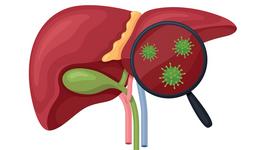The Latest Updates From the Gene-Editing Clinical Trials (June 2024)
CMN Intelligence - The World’s Most Comprehensive Intelligence Platform for CRISPR-Genomic Medicine and Gene-Editing Clinical Development
Providing market intelligence, data infrastructure, analytics, and reporting services for the global gene-editing sector. Read more...
Cellectis obtains EU Orphan Drug Designation for acute lymphoblastic leukaemia product candidate UCART22
Cellectis announced yesterday that the European Commission has granted an Orphan Drug Designation to its product candidate UCART22, which is being developed for the treatment of acute lymphoblastic leukaemia (ALL).
UCART22 is a TALEN-engineered CD22-targeting allogeneic CAR T-cell therapeutic candidate that is currently being evaluated in the BALLI-0 Phase 1/2 trial. This open-label dose-escalation and dose-expansion trial is designed to evaluate the safety, expansion, persistence and clinical activity of UCART22 in patients with relapsed or refractory ALL.
According to a press release published by Cellectis, the European Medicines Agency (EMA) considered that the significant benefit of UCART22 has been demonstrated based on preliminary clinical data for UCART22 from heavily pre-treated patients who had either relapsed or whose disease was refractory to approved therapies.
The most recent clinical data released from the BALLI-0 trial were presented in a poster by Cellectis at the last American Society of Hematology annual meeting in December 2023. Those data suggested that UCART22-P2 (fully manufactured in-house) is more potent with a preliminary response rate of 67% at Dose Level 2, compared to a 50% response rate at Dose Level 3 with UCART22-P1 (manufactured by an external CDMO).
As of July 1st, 2023, 3 patients were enrolled into the first UCART22 P2 cohort at dose level 2 (1 million cells/kg). UCART22 P2 was administered after a fludarabine, cyclophosphamide, and alemtuzumab (FCA) lymphodepletion regimen and was well tolerated. Those data also confirmed expansion of UCART22 cells in the responding patients and that this correlated with elevated serum cytokines and inflammatory markers.
Cellectis expects to provide further updates on the BALLI-01 trial before the end of 2024.
Orphan Drug Designation from the EC allows companies certain regulatory, financial, and commercial incentives to develop therapies for rare diseases where there are no satisfactory treatment options available.
Intellia announces positive long-term Phase 1 data from CRISPR trial for hereditary angioedema
In a press release published earlier this week, Intellia Therapeutics shared positive long-term data from the Phase 1 portion of the ongoing Phase 1/2 trial of NTLA-2002 in hereditary angioedema (HAE).
HAE is a rare genetic disease that is characterised by severe inflammatory attacks with swelling in various organs and tissues. Plasma kallikrein is a protein known to drive multiple inflammatory pathways, including the production of the inflammatory mediator bradykinin, which is overproduced in HAE. NTLA-2002 is designed to knock out the target gene kallikrein B1 (KLKB1) in hepatocytes. This gene encodes prekallikrein, a precursor of plasma kallikrein, thus its knockout permanently reduces plasma kallikrein activity and halts the production of bradykinin to prevent HAE attacks. NTLA-2002 is administered intravenously as a single dose of Cas9 mRNA and gRNA via lipid nanoparticles.
Pre-clinical studies demonstrated sustained and therapeutically relevant reduction in plasma kallikrein activity following a single dose in non-human primates, and the candidate is currently being evaluated in a combined Phase 1/2 clinical trial to evaluate its safety, tolerability, pharmacokinetics, and pharmacodynamics.
The latest clinical data for NTLA-2002, shared in an oral presentation at the recent European Academy of Allergy and Clinical Immunology Congress 2024, revealed that eight of 10 patients remain attack-free following the 16-week primary observation period through the latest follow-up, including patients with the most severe HAE. A single dose of NTLA-2002 led to a 98% mean reduction in monthly HAE attack rate, with an average follow-up of over 20 months across all patients, while all patients who stopped prophylactic treatment after receiving NTLA-2002 remain free of chronic prophylactic treatment. In addition, favourable safety and tolerability profiles were reported at all dose levels.
Enrolment of the randomised, placebo-controlled Phase 2 study to further evaluate 25 mg and 50 mg doses of NTLA-2002 is complete, and Intellia plans to report topline results in mid-2024 with detailed results expected to be presented at a medical meeting later this year. The company also shared in its press release that it expects initiate a pivotal, Phase 3 trial of NTLA-2002 in the second half of 2024, subject to regulatory feedback.
A recording of Intellia's Therapeutics investor webcast to discuss the recent NTLA-2002 can be accessed here.
Caribou Biosciences presents encouraging data from CB-010 ANTLER Phase 1 trial in second-line large B cell lymphoma
At a poster presentation during this year's American Society of Clinical Oncology Annual Meeting, Caribou Biosciences presented new data from the ongoing Phase 1 trial of CB-010 in second-line large B cell lymphoma (LBCL). The data, which are detailed in a press release, indicate that a single dose of CB-010 can potentially rival the safety, efficacy, and durability of approved autologous CAR-T cell therapies.
CB-010 is designed to be an 'off the shelf' therapy, which is derived from healthy donor T cells that are edited using Caribou's proprietary Cas9 chRDNA technology. To generate CB-010, a CD19-specific CAR is inserted into the TRAC gene (which encodes the T cell receptor alpha constant) of healthy donor T cells. The PD-1 gene is also deleted in these cells. This gene encodes the PD-1 protein that functions as a safety switch on T cells that cancer cells turn on to protect themselves from T cell-mediated immune responses.
So far, a total of 46 patients have been treated with one of three dose levels of CB-010 (40x106, 80x106, and 120x106 CAR-T cells). In the dose-escalation portion of the trial, 16 patients with various subtypes of aggressive relapsed or refractory B cell non-Hodgkin lymphoma (r/r B-NHL) were enrolled, while 30 patients with second-line LBCL were enrolled in the dose-expansion phase. As of April 1st 2024, the clinical data demonstrated that CB-010 was generally well tolerated with no Grade 3 or or graft-versus-host disease observed.
Retrospective analyses of all patients enrolled in the ANTLER trial revealed that those who received CB-010 derived from a partial HLA-matched donor (i.e. ≥4 matching HLA alleles) showed improved progression free survival (PFS) compared to patients who received CB-010 with ≤3 HLA matches. Based on the overall safety, efficacy, and translational data analysed, 80x106 CAR-T cells has been selected as the recommended Phase 2 dose for CB-010.
A webcast of a KOL discussion of the recent ANTLER trial data can be accessed here.
Stay tuned for more updates
We will continue to update you on the gene-editing clinical trials as new details emerge. In the meantime, you can find all of our coverage on clinical-stage gene editing programmes here.
For a complete overview of current gene editing clinical trials, check out CRISPR Medicine News' Clinical Trials Database.
To get more CRISPR Medicine News delivered to your inbox, sign up to the free weekly CMN Newsletter here.
Tags
ArticleNewsClinical News UpdatesAcute Lymphoblastic Leukemia, ALLCancerHereditary angioedema, HAETALENsCaribou Biosciences, Inc.Cellectis S.A.Intellia Therapeutics, Inc.
CLINICAL TRIALS
Sponsors:
Base Therapeutics (Shanghai) Co., Ltd.
Sponsors:
Base Therapeutics (Shanghai) Co., Ltd.







